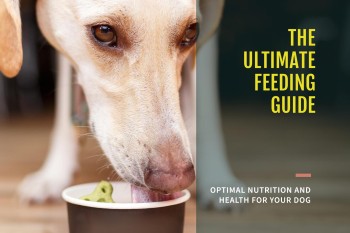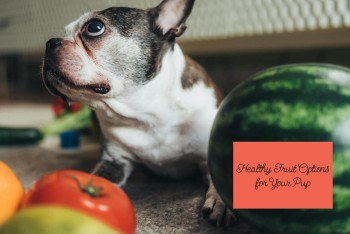Gastrointestinal Diseases in Dogs: Canine Digestive Health 🐶🩺
🐾 Dogs hold a special place in our hearts as loyal companions and members
of our families. As a dedicated veterinarian and pet owner, it's crucial to
prioritize their well-being, and one fundamental aspect of that is their
digestive health. Gastrointestinal (GI) diseases in dogs are more common than
you might think, and being well-informed about these issues is essential. In
this comprehensive guide, we will delve into the realm of gastrointestinal
diseases in dogs, shedding light on their causes, symptoms, diagnosis,
treatment, and preventive measures. Let's embark on this informative journey to
ensure our furry friends have the happiest tummies possible!
Understanding
Gastrointestinal Diseases
🤔 Gastrointestinal diseases encompass a
wide range of conditions that affect a dog's digestive system. These conditions
can result from various factors, including infections, dietary indiscretions,
allergies, and more. Understanding the nuances of these diseases is vital for
both pet owners and veterinarians.
1. Gastroenteritis: When the Tummy Rebels 🤢
·
Definition: Gastroenteritis is the inflammation of the stomach and intestines.
·
Causes: It can result from infections (bacterial, viral, or parasitic),
dietary changes, or food allergies.
·
Signs and Symptoms: Vomiting, diarrhea, abdominal pain, and loss of appetite.
·
Diagnosis: Through physical examination, blood tests (like a complete blood count
and chemistry panel), and fecal analysis.
·
Treatment: Typically includes fluid therapy to correct dehydration, anti-nausea
medication, and a bland diet.
Gastroenteritis is often a dog's way of telling us that something isn't right with
their digestive system. It can range from mild to severe, and timely treatment
is crucial to prevent complications.
In severe cases, it can lead to dehydration, which may require
intravenous (IV) fluids administered by your veterinarian. Moreover, dietary
management plays a significant role in recovery. Bland diets, often consisting
of easily digestible foods like boiled chicken and rice, can help soothe the
irritated stomach and intestines.
2. Inflammatory Bowel Disease (IBD): The Chronic Challenge 🌡️
·
Definition: IBD is a chronic inflammatory condition of the digestive tract.
·
Causes: The exact cause is unknown, but it's thought to involve an abnormal
immune response to antigens in the gut.
·
Signs and Symptoms: Chronic diarrhea, weight loss, vomiting, and sometimes bloody stools.
·
Diagnosis: It requires ruling out other diseases and often involves biopsies
taken during endoscopy.
·
Treatment: Specialized diets (hypoallergenic or novel protein), medications to
reduce inflammation (like corticosteroids), and immune-modulating drugs may be
used.
Inflammatory
Bowel Disease (IBD) can be challenging to manage, but with the
right approach and close collaboration between you and your veterinarian, your
dog can lead a relatively normal life.
IBD often necessitates dietary modifications. Hypoallergenic diets that
contain novel protein sources like duck or venison can help reduce the allergic
response in the gut. Additionally, medications like corticosteroids or
immune-modulating drugs can be prescribed to control inflammation.
3. Pancreatitis: When the Pancreas Protests 🥞
·
Definition: Pancreatitis is the inflammation of the pancreas.
·
Causes: High-fat diets, obesity, certain medications, and metabolic conditions
can contribute.
·
Signs and Symptoms: Severe abdominal pain, vomiting, diarrhea, and lethargy.
·
Diagnosis: Blood tests, including measurement of pancreatic enzymes (lipase and
amylase), and imaging studies (like ultrasound).
·
Treatment: Often requires hospitalization, fasting to allow the pancreas to rest,
pain management, and supportive care.
Pancreatitis can be an excruciatingly painful condition for dogs. It's crucial to
follow your veterinarian's advice carefully to manage and prevent recurrences.
For severe cases of pancreatitis, hospitalization may be necessary.
While hospitalized, dogs are typically kept NPO (nothing by mouth) to rest the
pancreas. Intravenous (IV) fluids help maintain hydration while providing
necessary nutrients. Pain management is also a significant component of
treatment.
4. Intestinal Parasites: Unwanted Guests 🦠
·
Definition: These are internal parasites that can inhabit a dog's intestines.
·
Causes: Ingestion of contaminated food, water, or feces containing parasite
eggs or larvae.
·
Signs and Symptoms: Diarrhea, weight loss, and a dull coat.
·
Diagnosis: Fecal examination is the primary diagnostic tool.
·
Treatment: Deworming medications (antiparasitics) and preventive measures to
reduce the risk of reinfection.
Intestinal
parasites are common in dogs, especially puppies. Regular
deworming and good hygiene practices can keep these unwanted guests at bay.
Prevention
and Control: Keeping Your Dog's Tummy Happy 🛡️
Preventing GI diseases in dogs is essential for
their well-being. Here are some practical steps you can take:
·
Nutrition: Maintain a balanced and high-quality diet tailored to your dog's
specific needs and sensitivities. Avoid feeding your dog table scraps and foods
that are toxic to them (like chocolate, onions, and grapes).
·
Hygiene: Keep your dog's environment clean to prevent the spread of parasites.
Regularly clean their living area and dispose of feces properly.
·
Deworming: Follow your veterinarian's recommendations for deworming to keep
intestinal parasites under control. Puppies may need more frequent deworming.
·
Vaccination: Ensure your dog is up-to-date on vaccinations, as some diseases can
cause gastrointestinal symptoms.
A Happy
Tummy, a Happy Dog!
📚 Armed with knowledge about gastrointestinal diseases in dogs, you can
be proactive in recognizing the signs and symptoms early, seeking prompt
veterinary care, and following preventive measures. Remember, a happy tummy
leads to a happy dog, and a happy dog makes for a happy home!
🌐 For more informative content on pet care and veterinary topics, visit bdvets.com/blog.
Don't forget to subscribe to our YouTube channel for video updates
on pet health and well-being. Together, let's keep our beloved pets in the best
of health! 🐾🩺


















